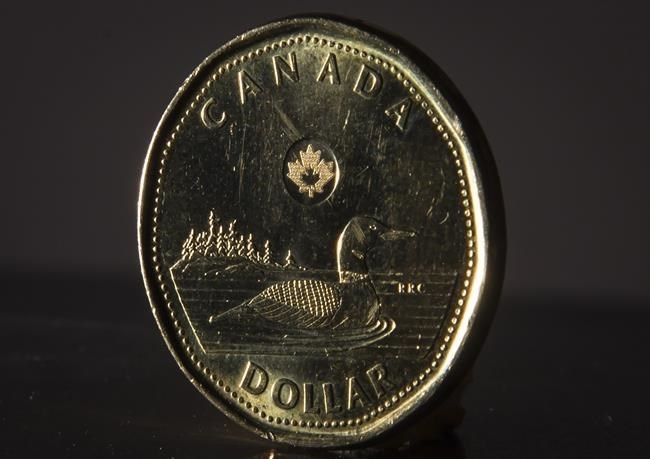TORONTO — Materials and financials pushed ÎÚÑ»´«Ã½'s main stock index lower to end the week but the Toronto market rebounded strongly in October from a weak start to fall.Â
Friday started on the wrong foot after two of the largest U.S. tech giants reported disappointing results with Apple highlighting supply chain constraints and Amazon pointing to labour shortages and increasing costs.
The heavyweight financials sector dropped as bond yields fell while lower metals prices hurt materials.
"Energy unfortunately is not able to make up what banks and materials are down, and so you have a bit of a negative day," said Allan Small, senior investment adviser at IA Private Wealth.
The S&P/TSX composite index closed down 160.46 points to 21,037.07.Â
Materials was the biggest laggard, losing 1.6 per cent as shares of Yamana Gold Inc. and Eldorado Gold fell 7.4 and 6.6 per cent, respectively.
The December gold contract was down US$18.70 at US$1,783.90 an ounce and the December copper contract was down 7.1 cents at US$4.37 a pound.Â
Financials lost 1.4 per cent with Bank of Montreal down three per cent and Manulife Financial off 2.3 per cent.
The Toronto stock market fell 0.8 per cent during a volatile week in which it experienced the biggest daily loss in nearly a month, followed the next day by the largest gain in five months.
October trading ended with the TSX rising 4.8 per cent to push it up 20.7 per cent so far this year.
Industrials, energy and consumer discretionary barely ended in positive territory.
Energy climbed with shares of Suncor Energy Inc. gaining 1.7 per cent and Tourmaline Oil Corp. up 1.5 per cent.
"I think it's one of those days where people are just taking some profits off the table in those areas that have been red hot," Small said in an interview, adding that he's surprised crude oil prices haven't yet fallen below US$80 a barrel.
The December crude oil contract was up 76 cents at US$83.57 per barrel and the December natural gas contract was down 35.6 cents at US$5.43 per mmBTU.Â
Small dismisses suggestions that oil could reach US$100, saying he doesn't believe OPEC will allow that to happen and will increase production to keep a lid on prices.
He anticipates oil being rangebound between US$70 to US$85 for a little while and then pulling back below US$70.
The Canadian dollar traded for 80.75 cents US compared with 80.98 cents US on Thursday.Â
In New York, the Dow Jones industrial average was up 89.08 points at 35,819.56. The S&P 500 index was up 8.96 points at 4,605.38, while the Nasdaq composite was up 50.27 points at 15,498.39. The S&P 500 and Nasdaq set record intraday highs.
Small said the Canadian stock market has outpaced the majority of U.S. counterparts this year on heightened demand for commodities that has driven up prices, while higher bond yields have supported banks and insurance companies.
"It's kind of a perfect storm for the TSX," he said, adding that a fading away of bottlenecks and supply chain issues could prompt a change.
Small is not expecting the TSX to fall because the Bank of ÎÚÑ»´«Ã½ and the Federal Reserve say they will look to raise interest rates sometime in the middle of 2022.
"So perhaps the TSX grinds a little bit higher towards the end of the year," said Small, noting that November and December are historically the two best months of the year for investing,
This report by The Canadian Press was first published Oct. 29, 2021.Â
Companies in this story: (TSX:ELD, TSX:YRI, TSX:BMO, TSX:MFC, TSX:SU, TSX:TOU, TSX:GSPTSE, TSX:CADUSD=X)Â
Ross Marowits, The Canadian Press



